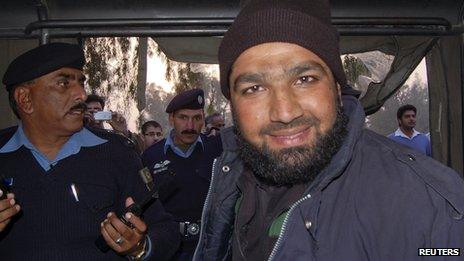Who are Pakistan's Christians?
- Published
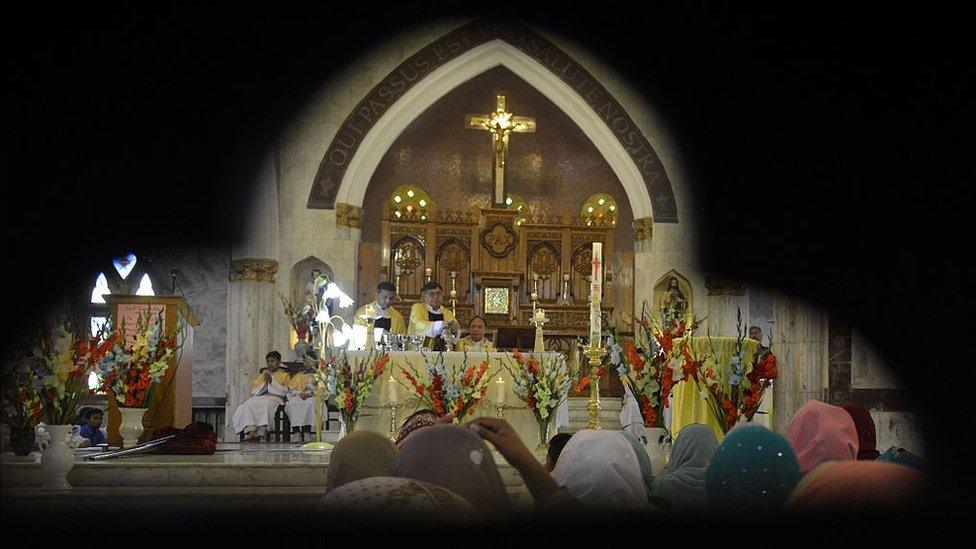
Lahore is one of several cities with a significant Christian population
The Taliban attack at a Lahore park was the latest in an escalating number of attacks on Christians in Pakistan, explains the BBC's M Ilyas Khan.
Some of these have been related to Pakistan's controversial blasphemy laws, while others appear to have a political motive.
How many Christians are there in Pakistan?
Pakistan is overwhelmingly Muslim but after Hindus, Christians are the second-largest minority group, representing about 1.6% of the population.
The southern metropolis of Karachi has a large Christian population and there are countless Christian villages in the Punjab heartland and cities of Lahore and Faisalabad.
There is also a sizeable population in the deeply conservative north-western province of Khyber Pakhtunkhwa province, particularly in Peshawar city.
Pre-partition Pakistan was a much more diverse place but tolerance has declined as society has been increasingly Islamicised and more homogenous.
Before partition minorities made up 15% of the population, now they fall short of 4%.
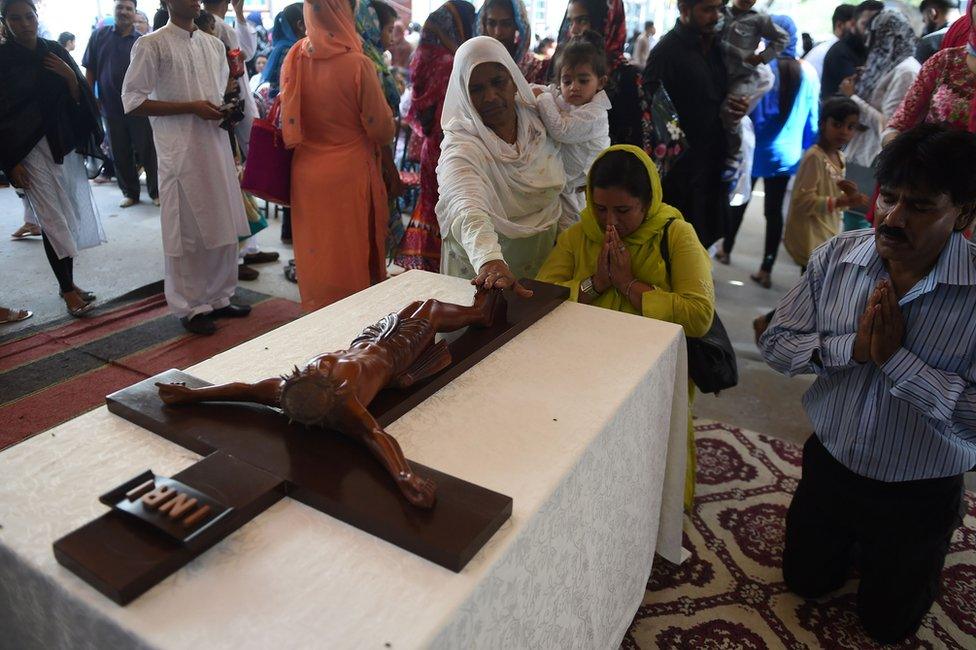
Besides Karachi, other cities like Lahore, Faisalabad and Peshawar also have Christian populations
Are they an influential group?
The majority of Pakistan's Christians are descended from low-caste Hindus who converted under the British Raj, in part to escape the caste system.
Many provided labour in garrison towns and every cantonment city has an area known as Lal Kurti, traditionally the area where Christians reside.
But Christian communities remains in the poorest sector of society doing menial jobs. Entire villages in parts of Punjab are Christian with inhabitants working as labourers and farmhands.
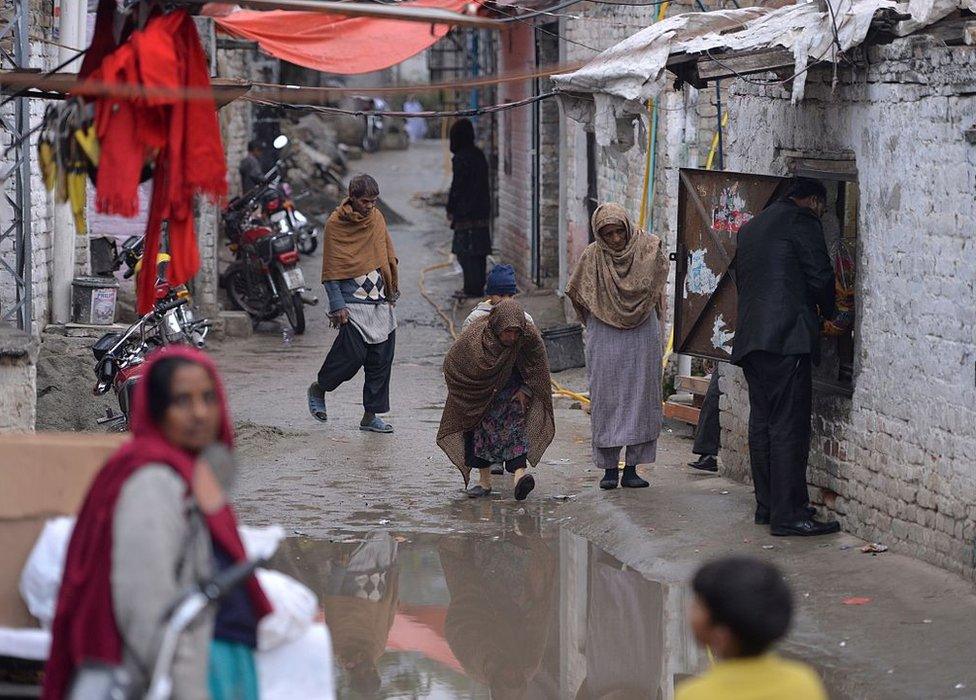
Many Christians are among the poorest in Pakistani society
There are sections of the Christian community that are well off. They came over from Goa under the Raj, are more educated and mainly settled in Karachi.
What all of them share is a sense of vulnerability, with a number of wealthier Christians leaving to settle in Canada and Australia as the climate of intolerance in Pakistan becomes more unbearable.
Why are they being attacked?
Muslims and Christians mostly co-exist amiably enough without frequent outbreaks of animosity.
But accusations of blasphemy have also often led to mob violence against Christians, while militant Islamists have also targeted the community.
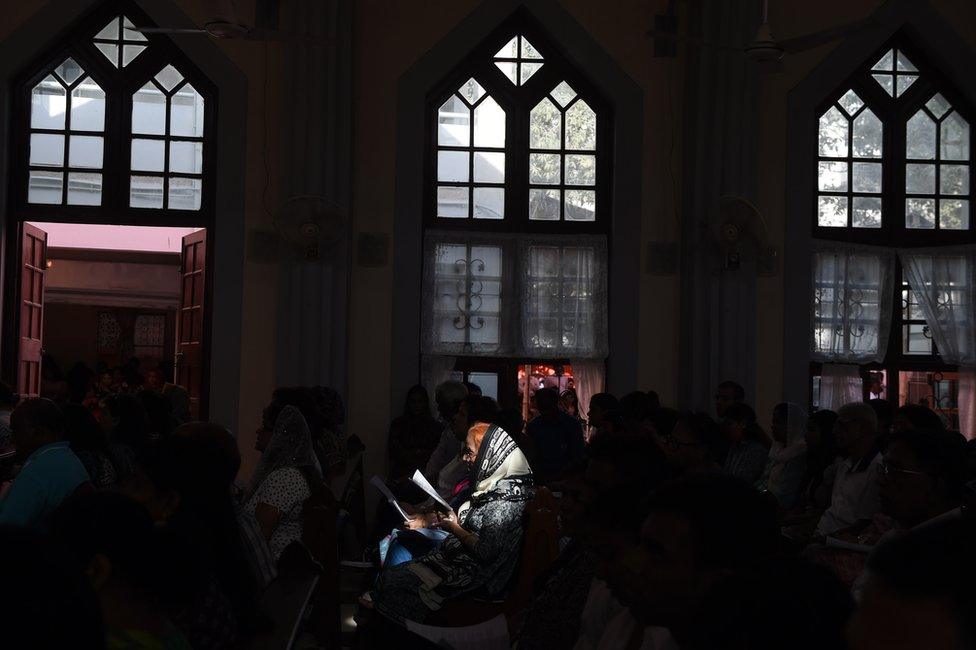
Religious minorities including Christians have been increasingly targeted amid the growing Islamicisation of Pakistan
Recent attacks include:
Two bomb blasts at churches in Lahore in March 2015 killing 14 and hurting more than 70 people
A twin suicide bomb attack at a Peshawar church in 2013 which left around 80 dead
In 2009, nearly 40 houses and a church are burnt by a mob in Gojra town in Punjab, external, with eight people burnt alive
In 2005, hundreds flee homes in Faisalabad as churches and Christian schools are set on fire by a mob, after a resident is blamed for burning pages of the Koran
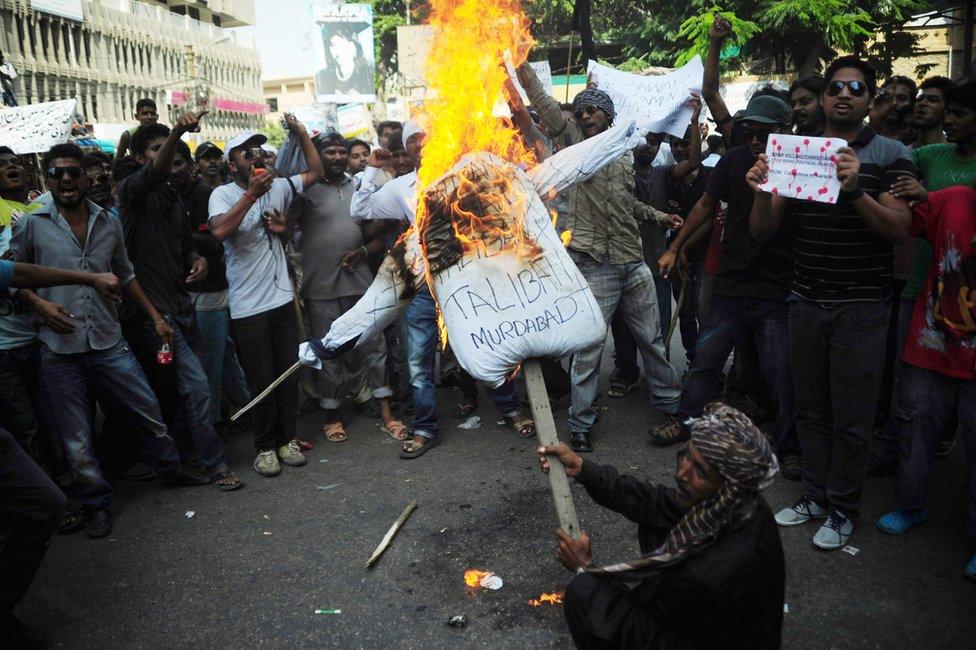
Christians mounted anti-Taliban protests following the 2013 Peshawar bomb attacks
Since the 1990s, scores of Christians have also been convicted for desecrating the Koran or blaspheming against Prophet Muhammad, although experts say most accusations are fuelled by personal disputes.
While most were awarded death sentences by lower courts, those sentences were often set aside by higher courts due to lack of evidence, or because the complainants were found to be targeting the community for economic benefits.
In 2012, a Christian girl, Rimsha Masih, became the first non-Muslim to be acquitted in a blasphemy case when it was discovered that she had been framed by a local Muslim cleric.
Perhaps the best known example is that of Asia Bibi, a Christian woman from a Punjab village who in 2010 got into an altercation with some Muslim women and was later accused by them of having blasphemed.
Salman Taseer, then the governor of Punjab who stated that Pakistan's strict blasphemy law had been abused in the case, was later murdered by his Islamist bodyguard, Mumtaz Qadri.
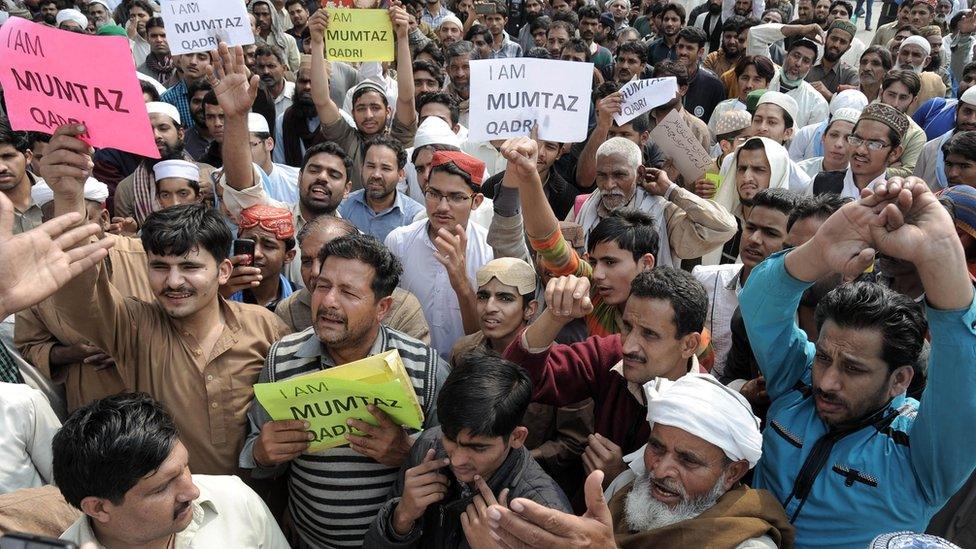
Many Islamists saw Qadri as a martyr and protested his execution
Qadri was found guilty and executed in February 2016, prompting mass protests.
Pakistan's minister for minority affairs and a Christian leader, Shahbaz Bhatti, was assassinated in 2011 by the Taliban for speaking out against the law.
Are there any other reasons?
Some of the violence is directly related to the American-led war in Afghanistan, so it has an expressly political motive.
Months after the US-led coalition attacked Afghanistan in late 2001, a grenade attack on a chapel, external inside a Christian mission hospital Taxila city killed four people.
A couple of months later, gunmen executed six workers of a Christian charity in their Karachi office. These incidents, though isolated, have continued through the years.
Attacks on Pakistan's Christian and Hindu minorities could be part of a militant plan to send a message to the West or embarrass Prime Minister Nawaz Sharif when he appears to be too friendly to the West.
- Published28 March 2016
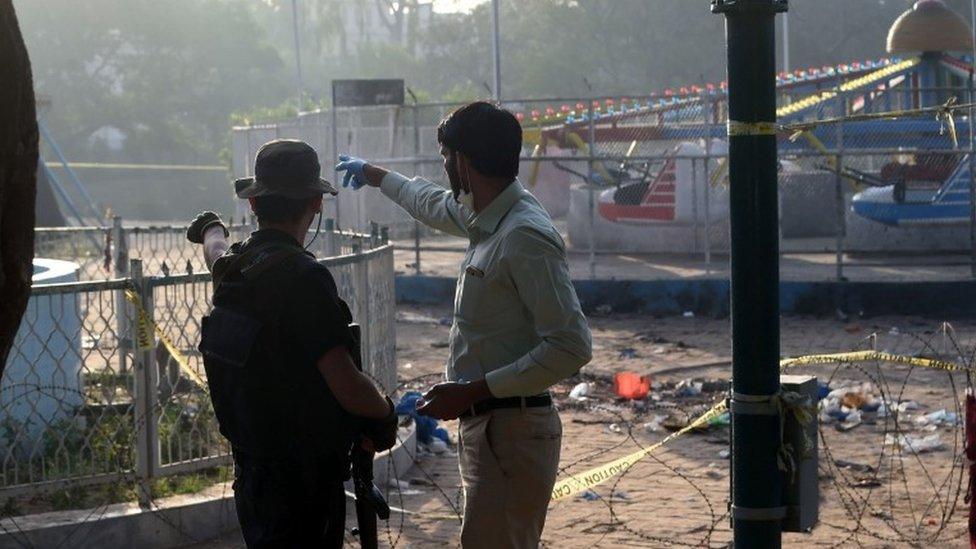
- Published20 January 2016
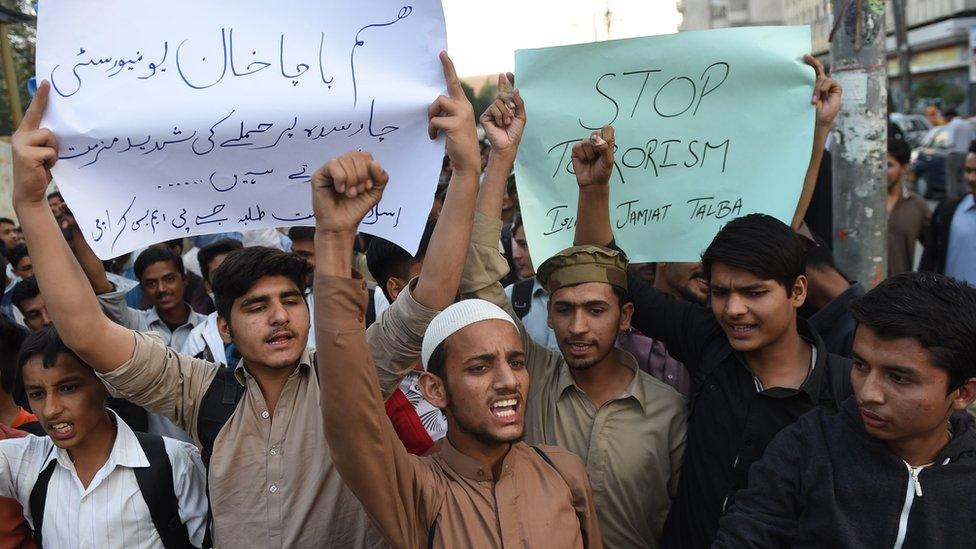
- Published9 January 2012
